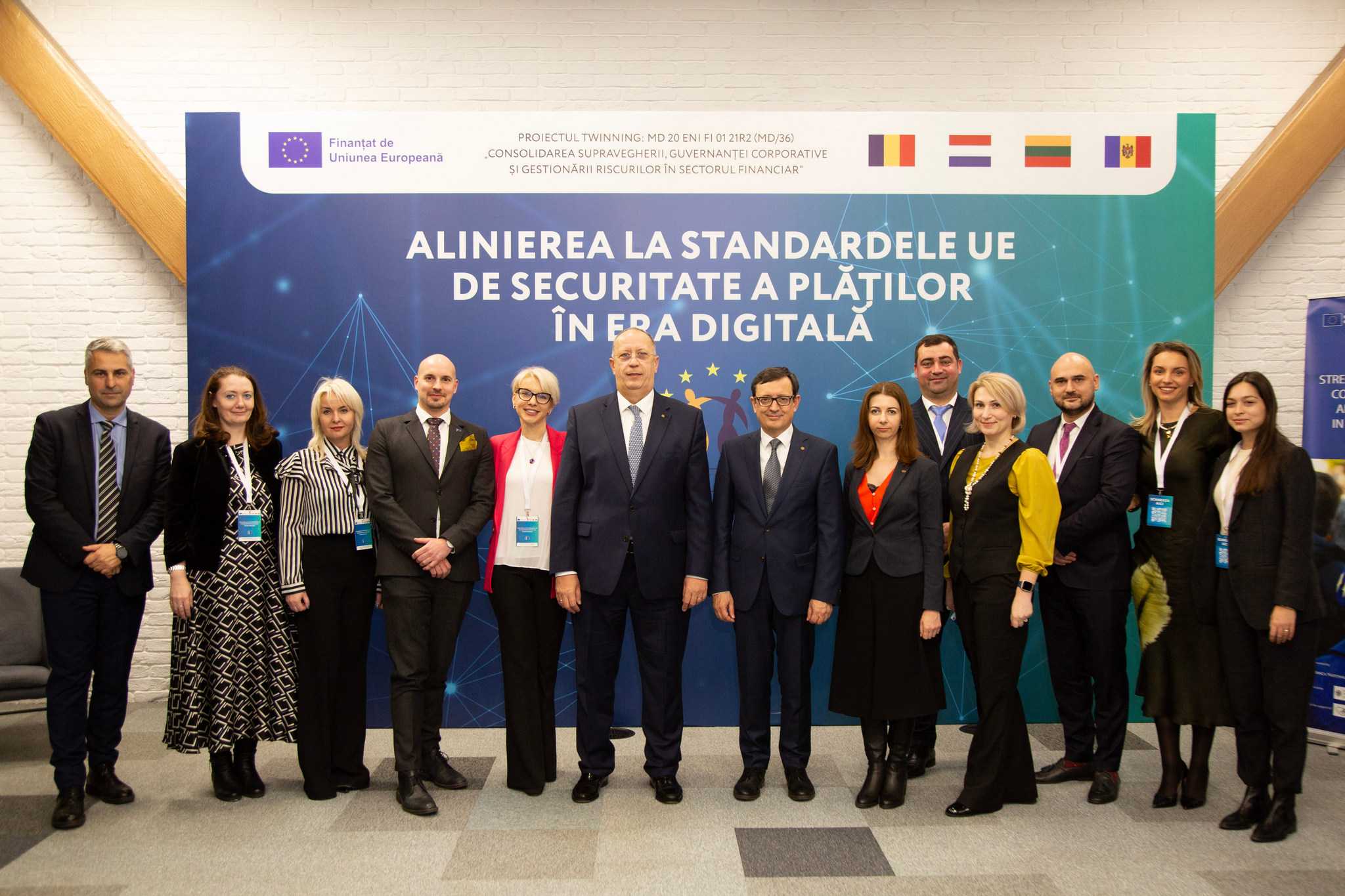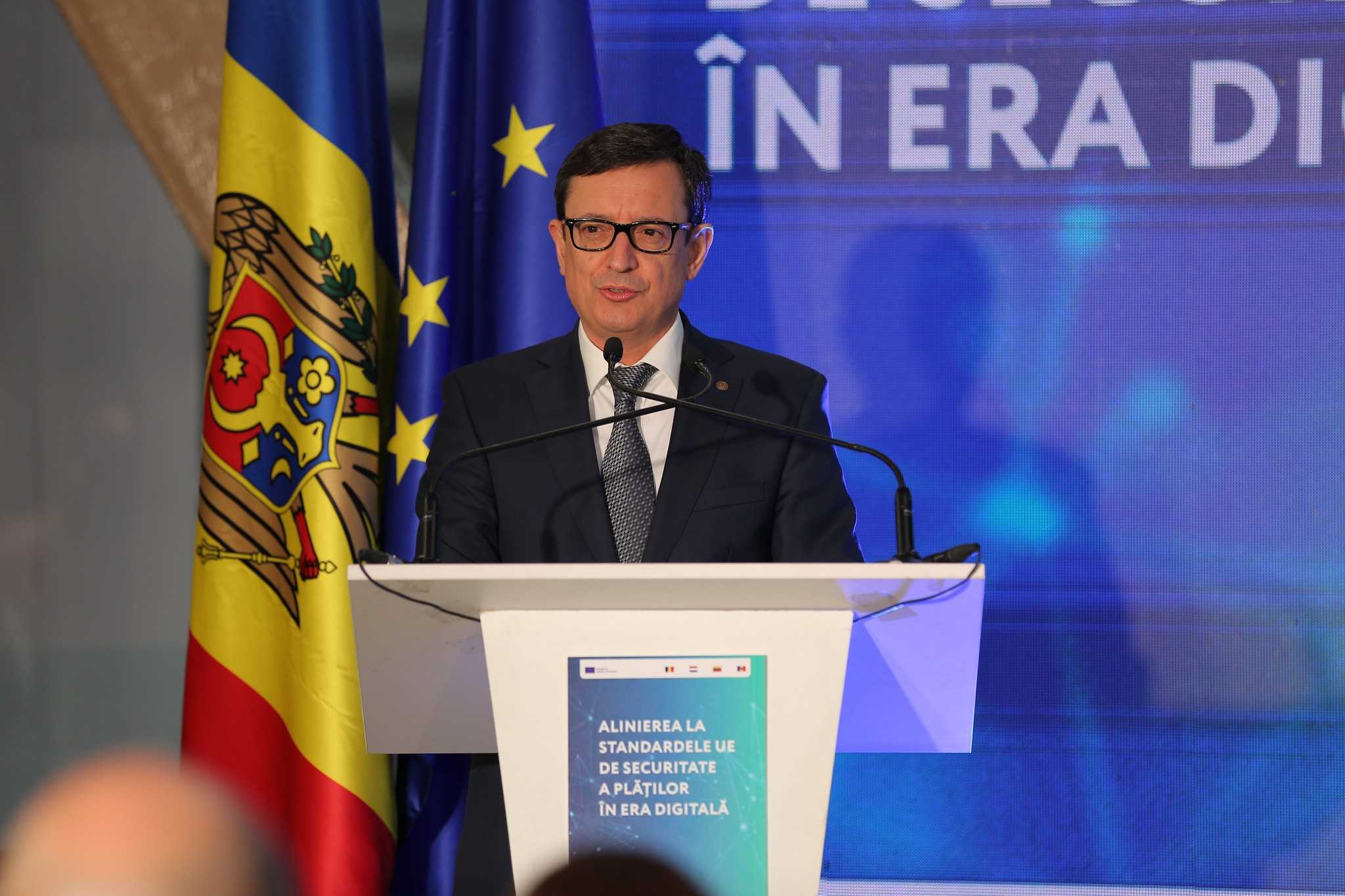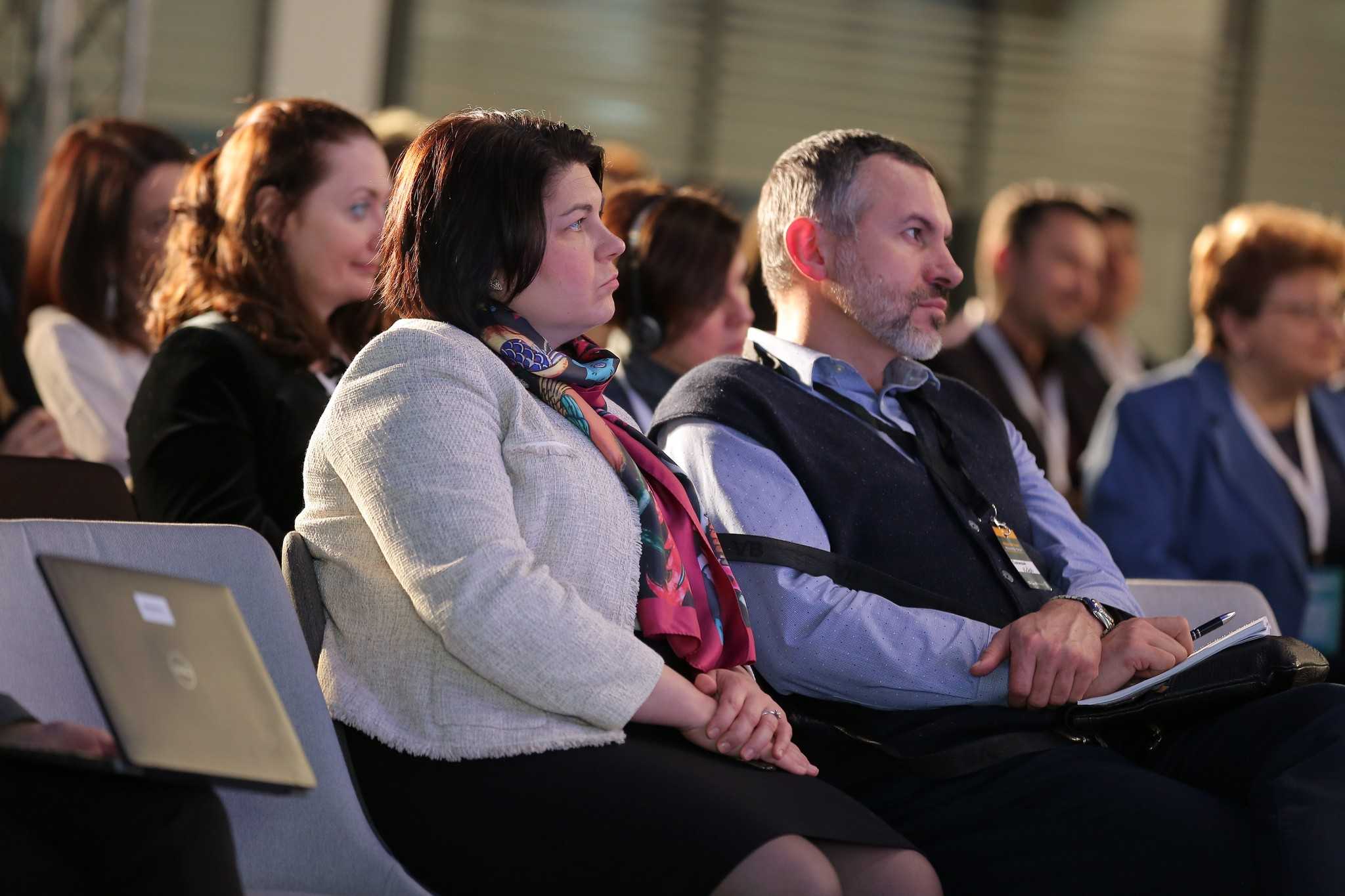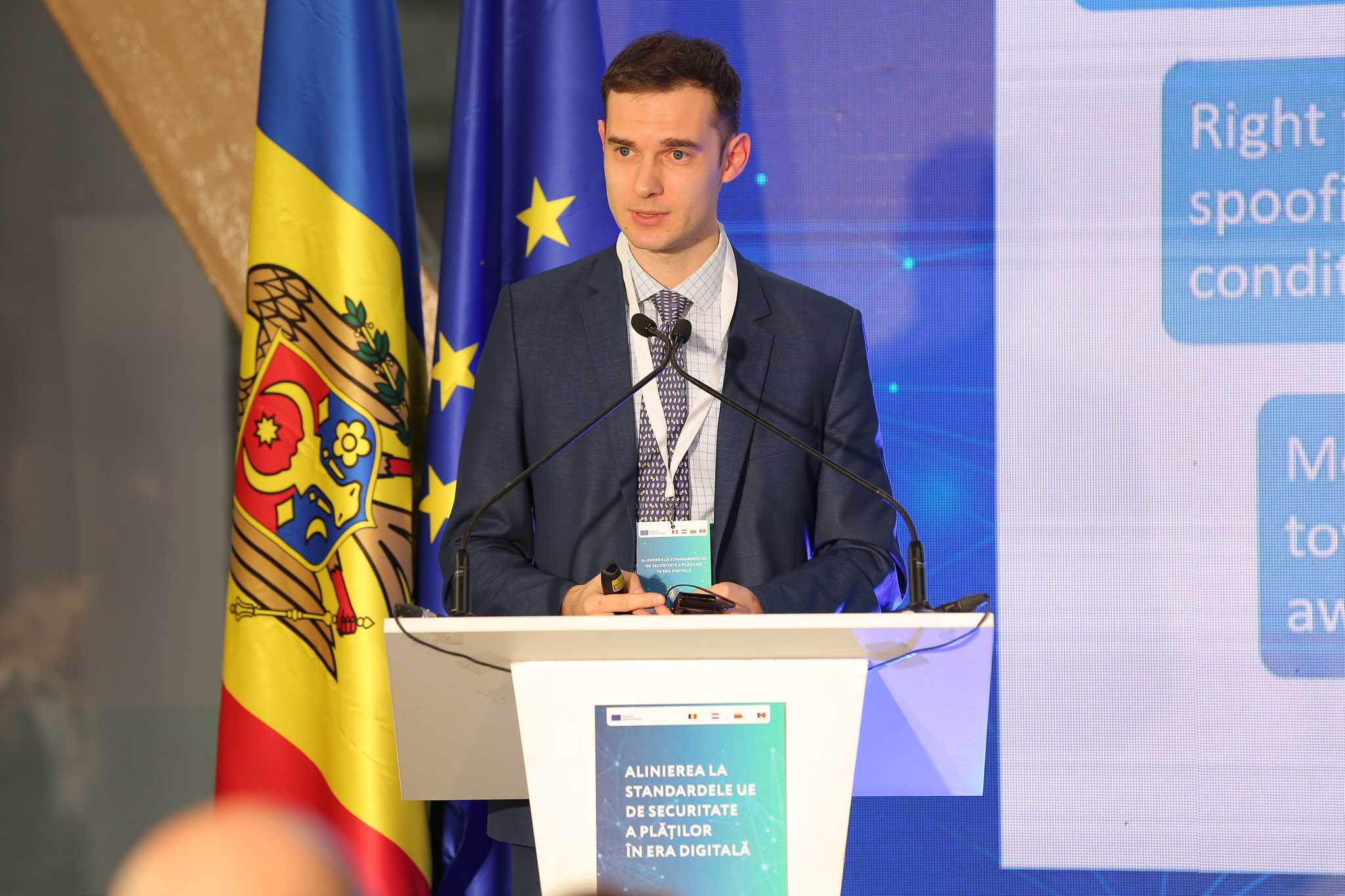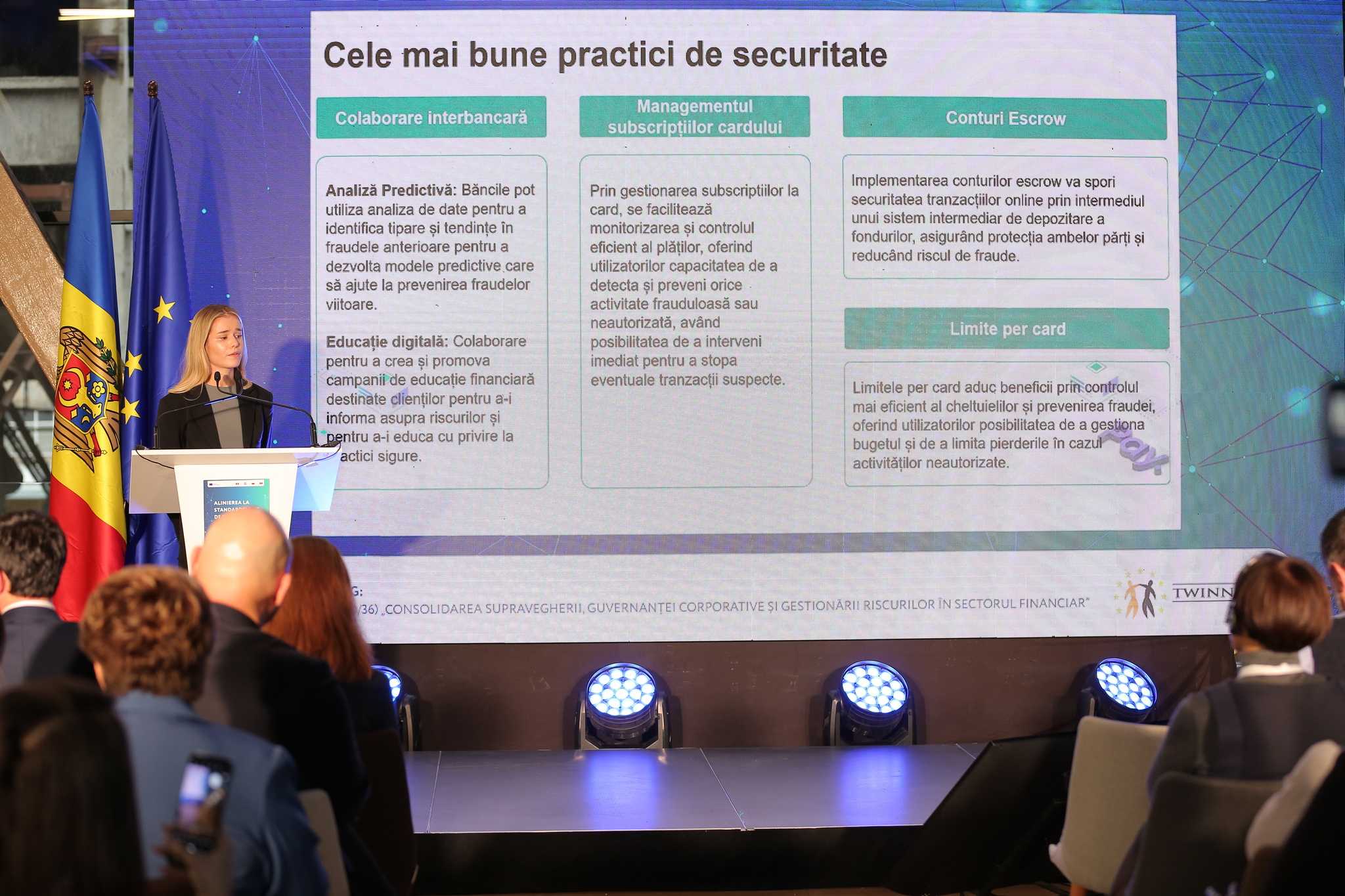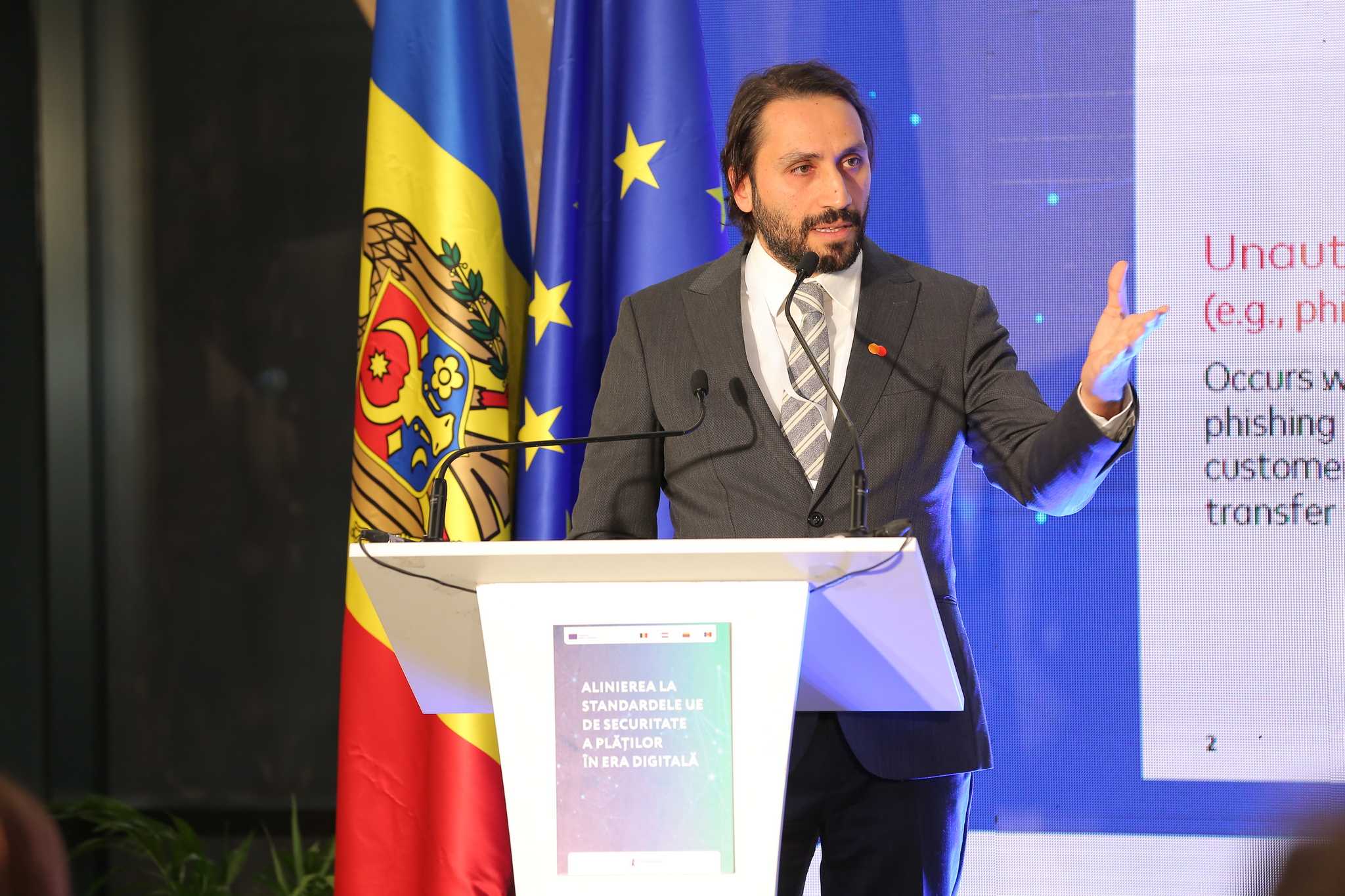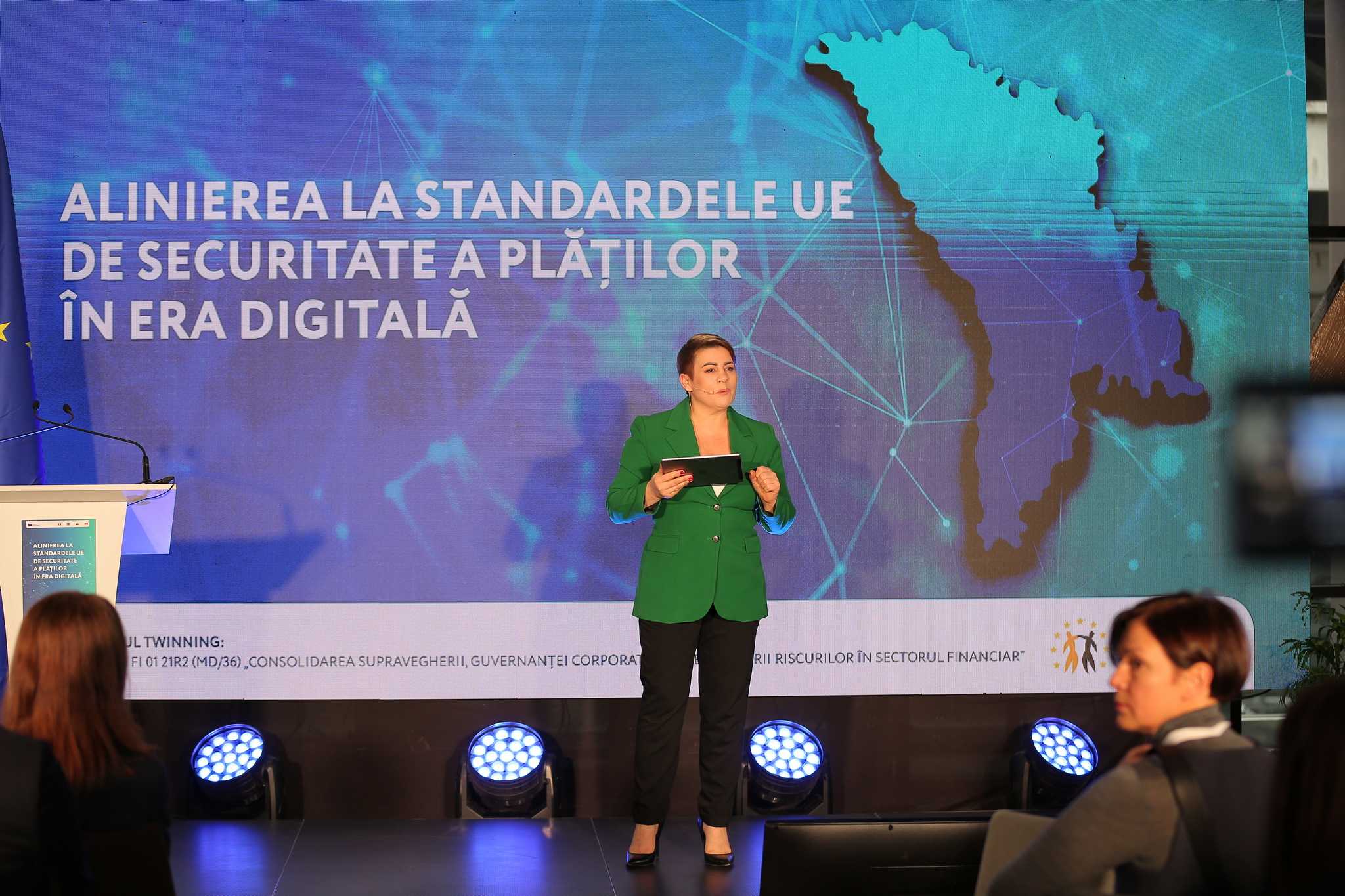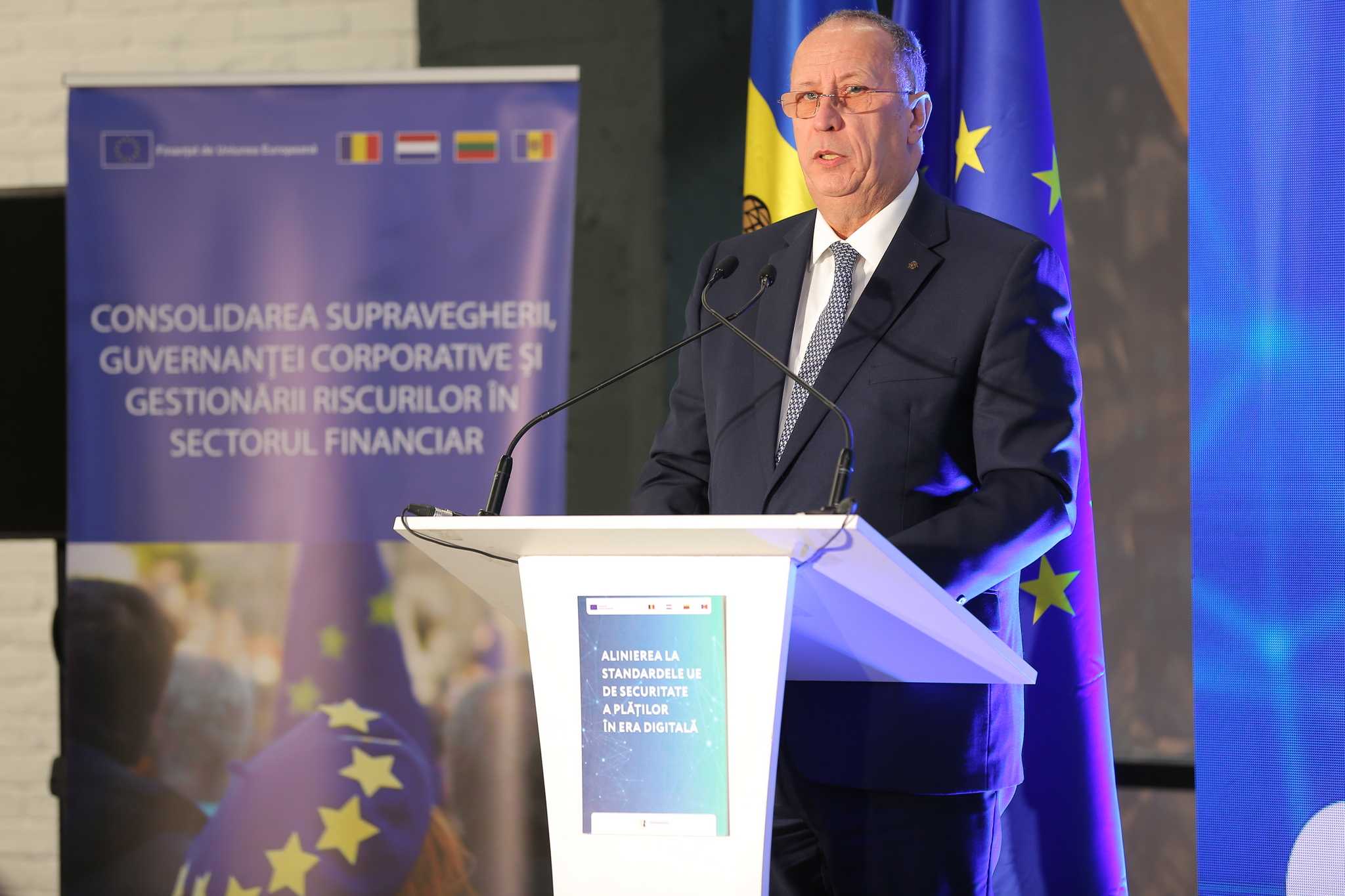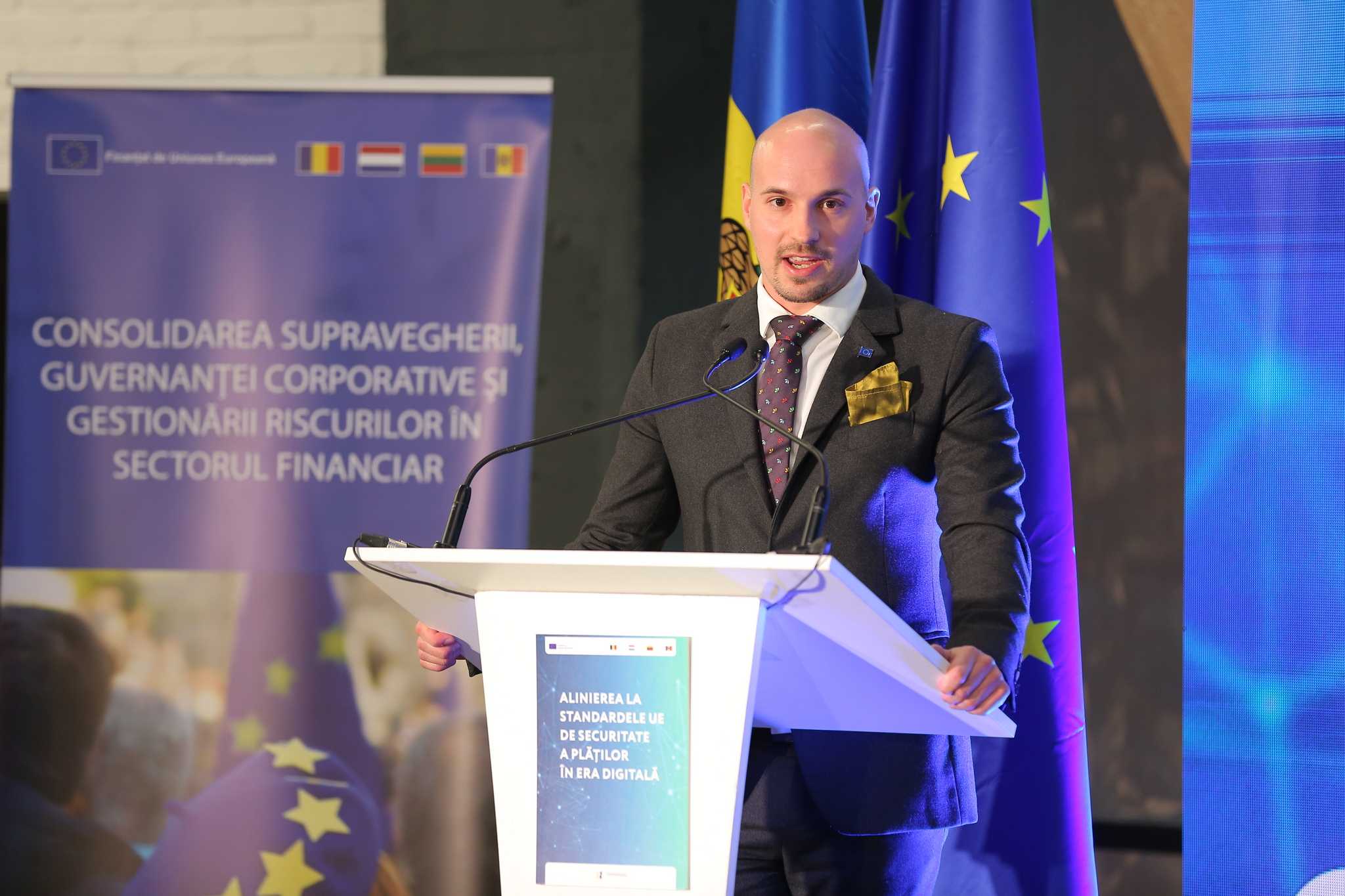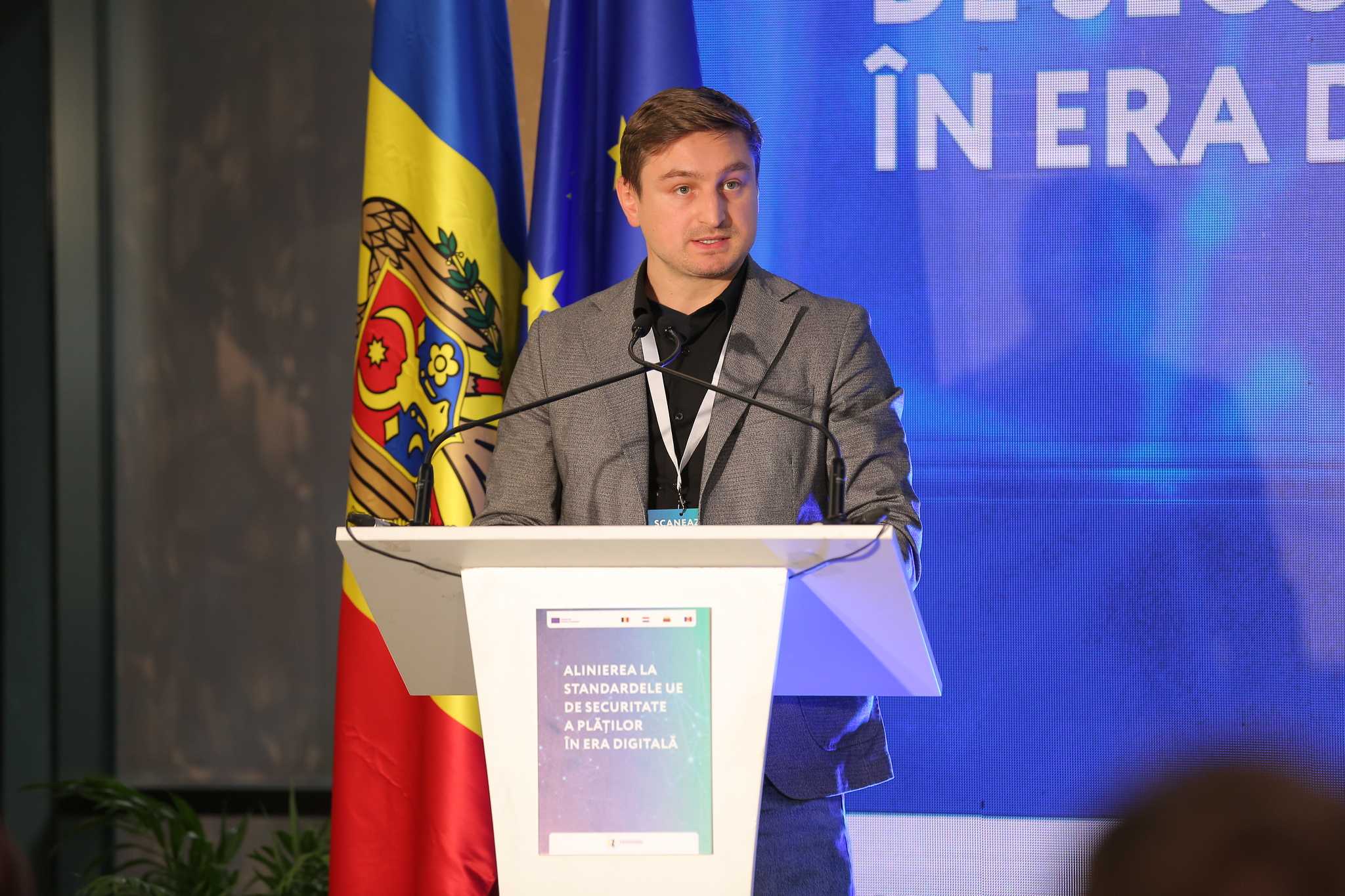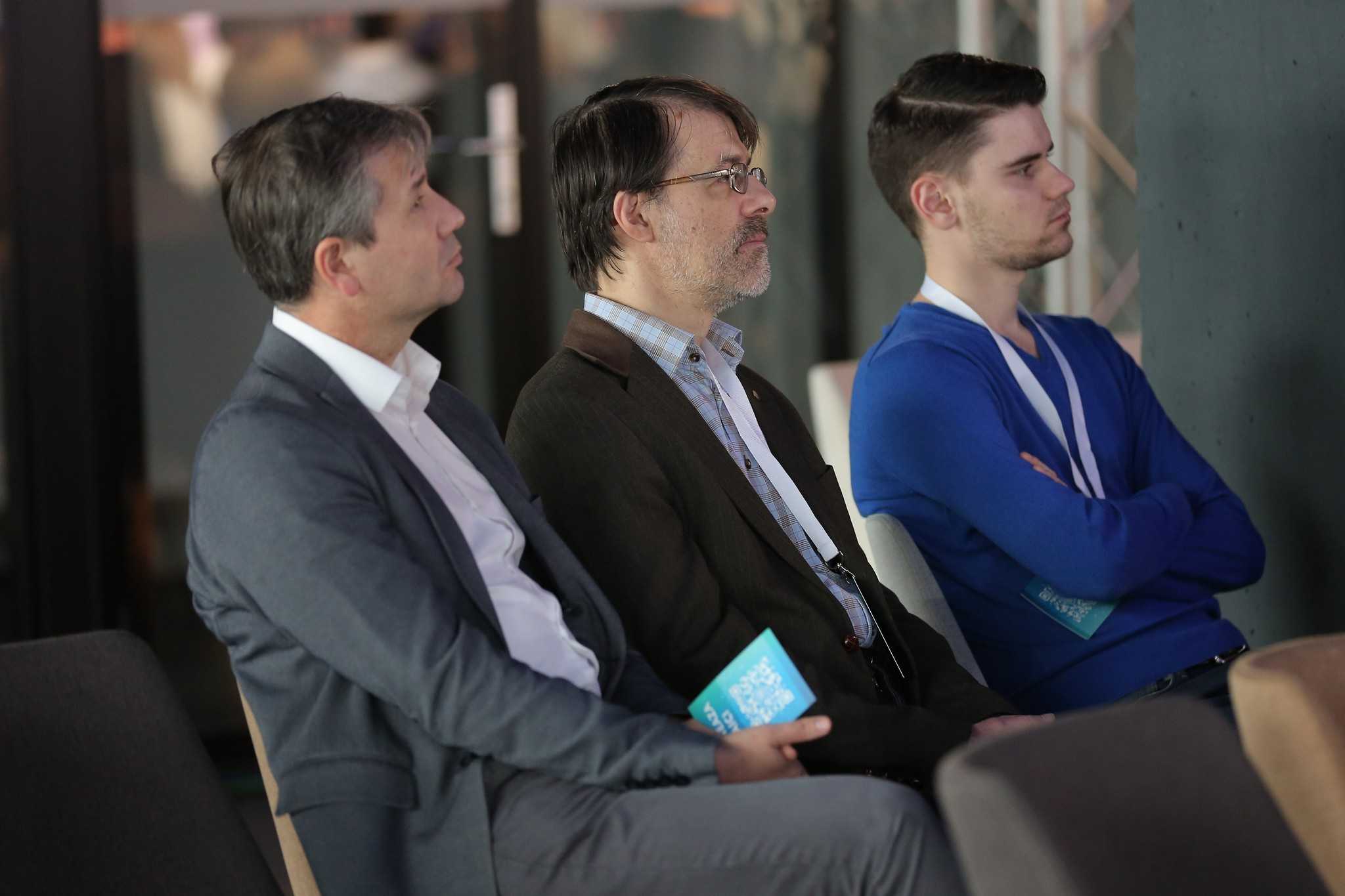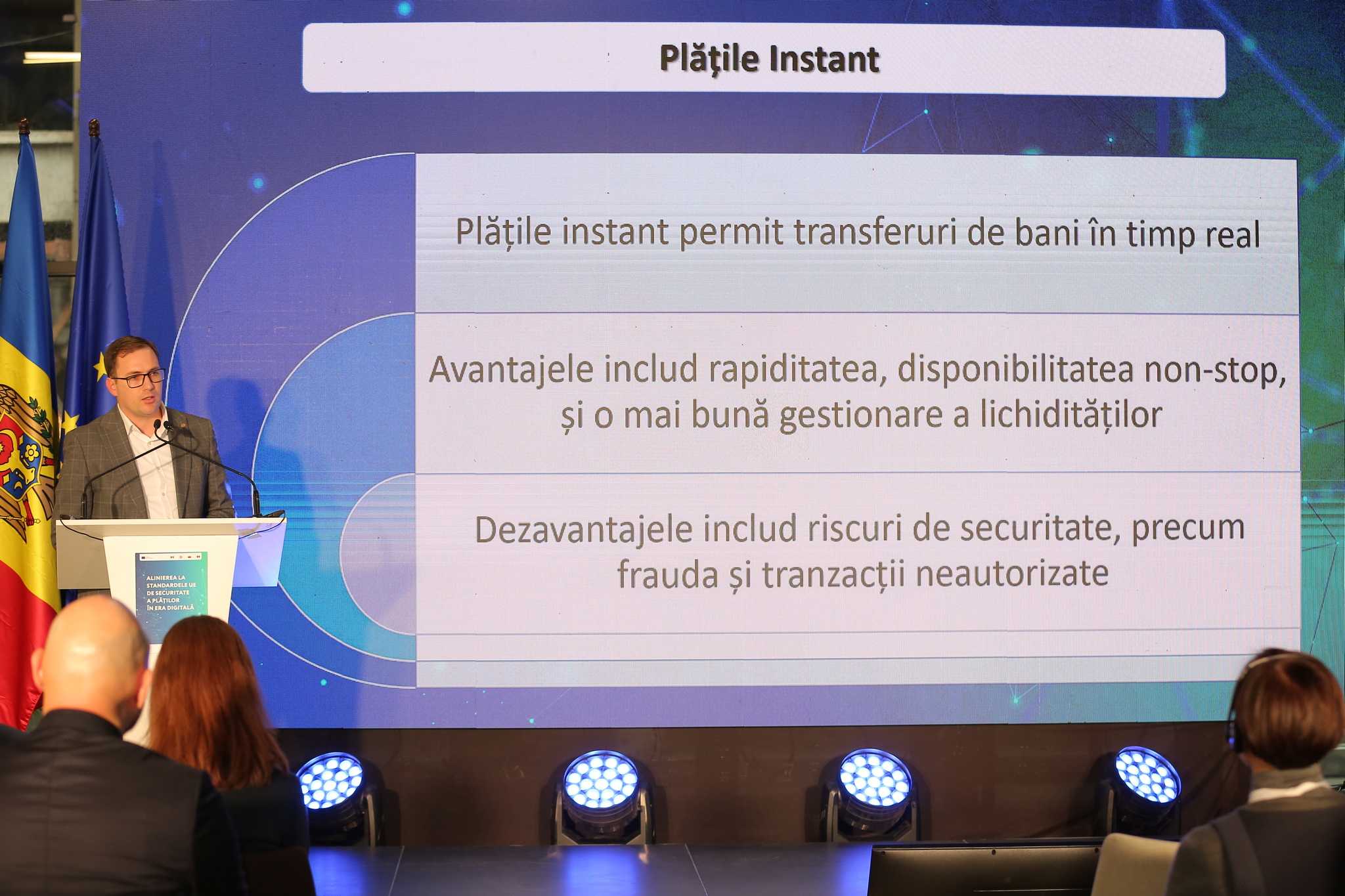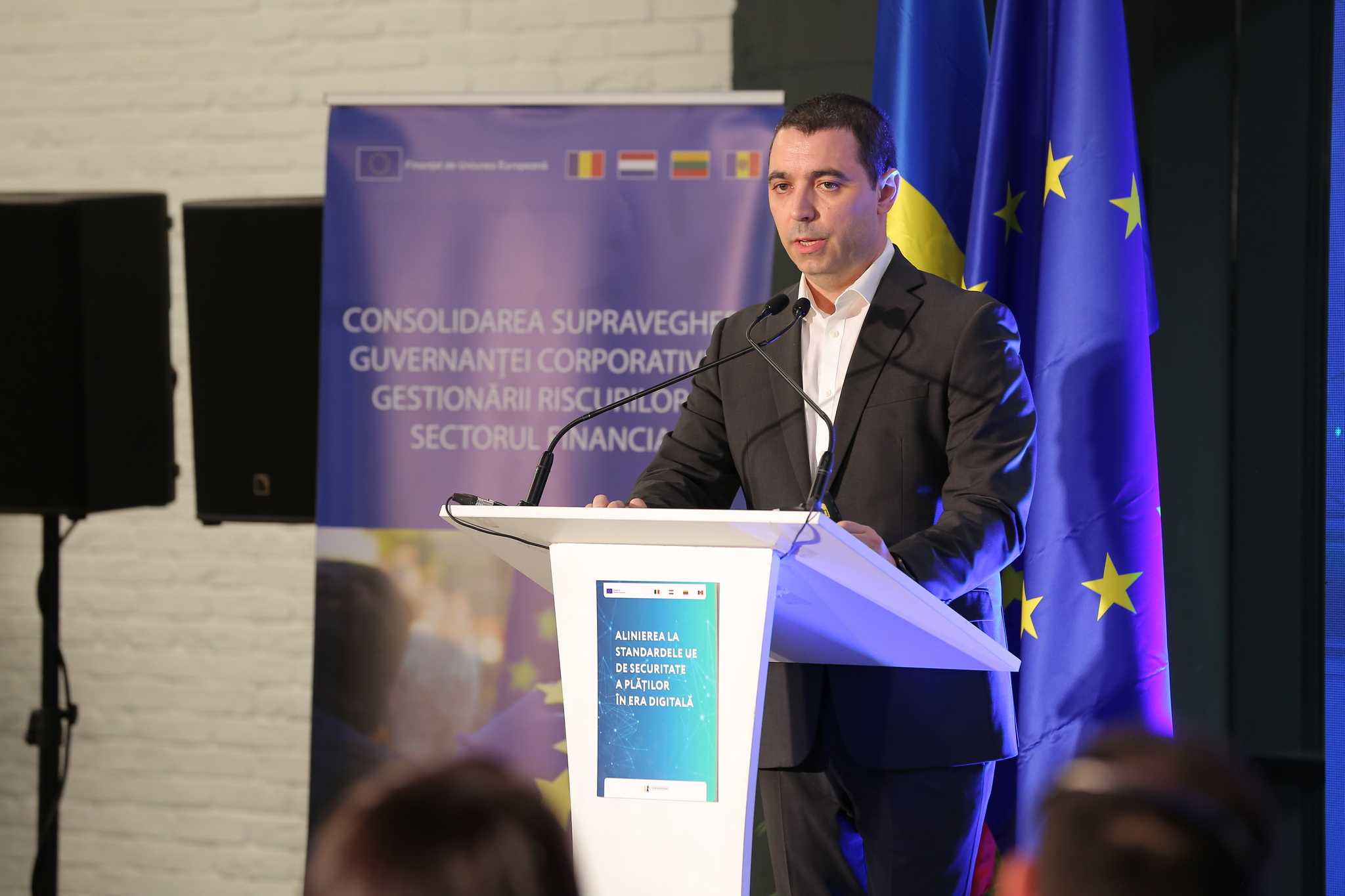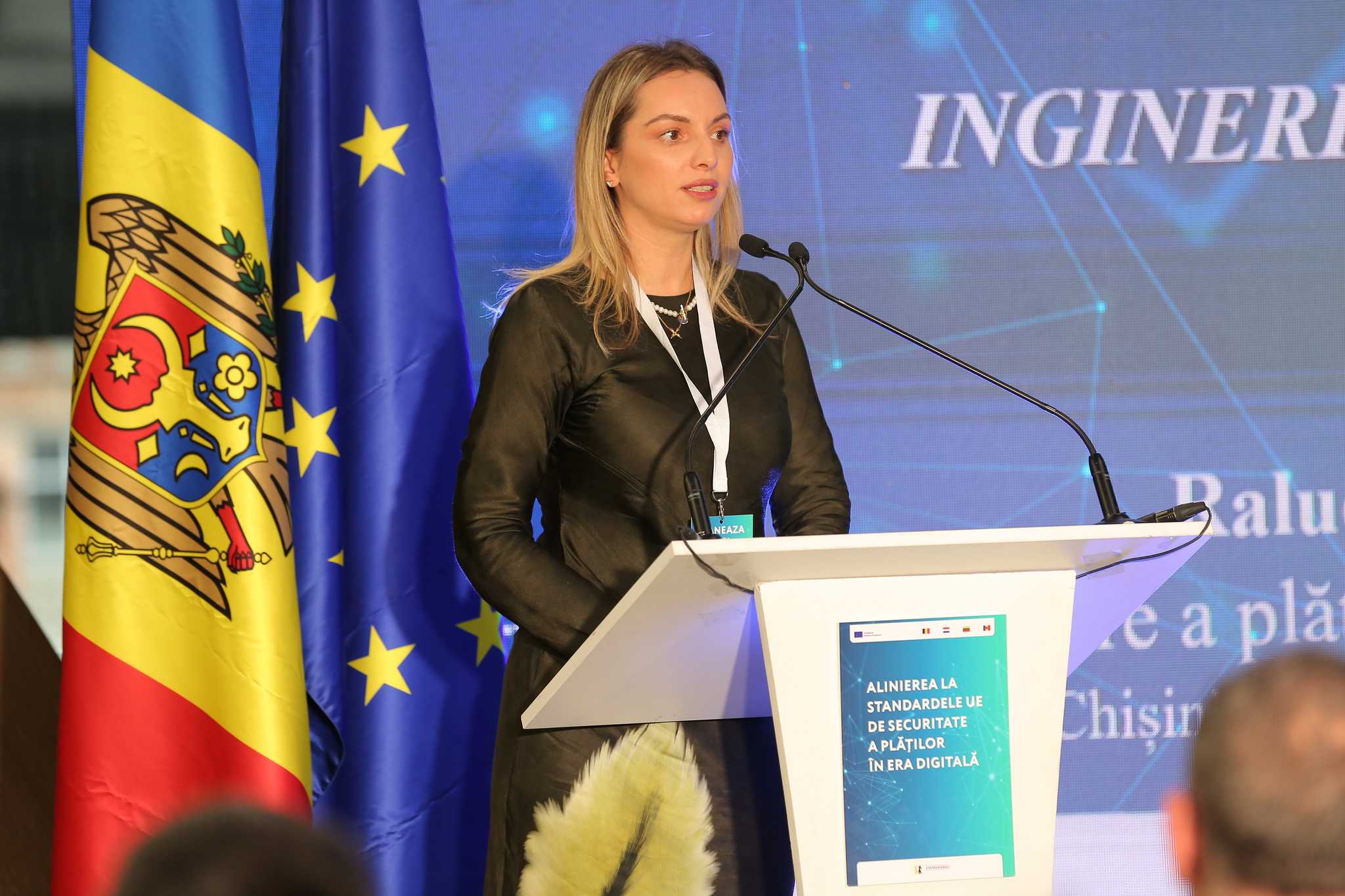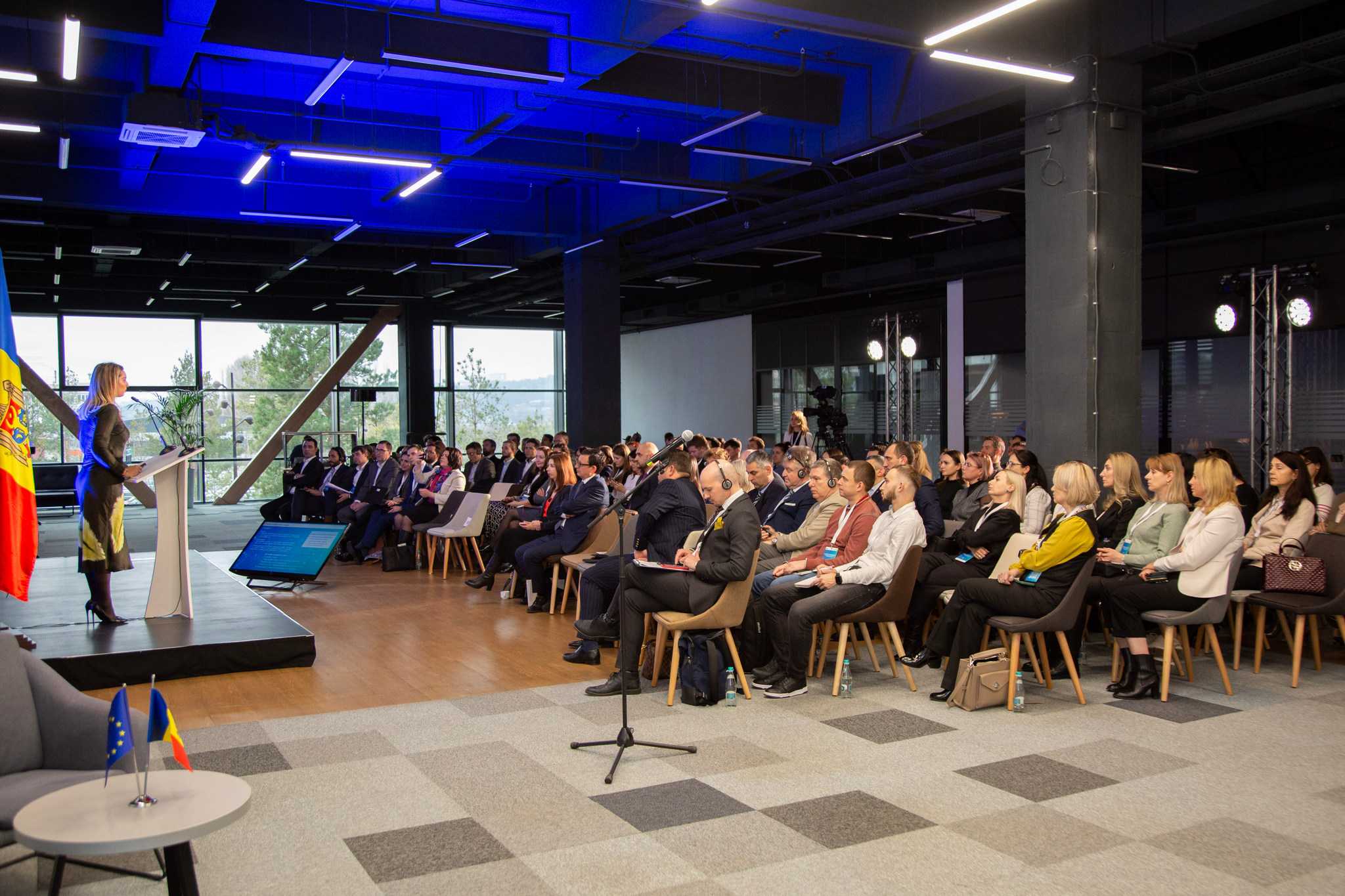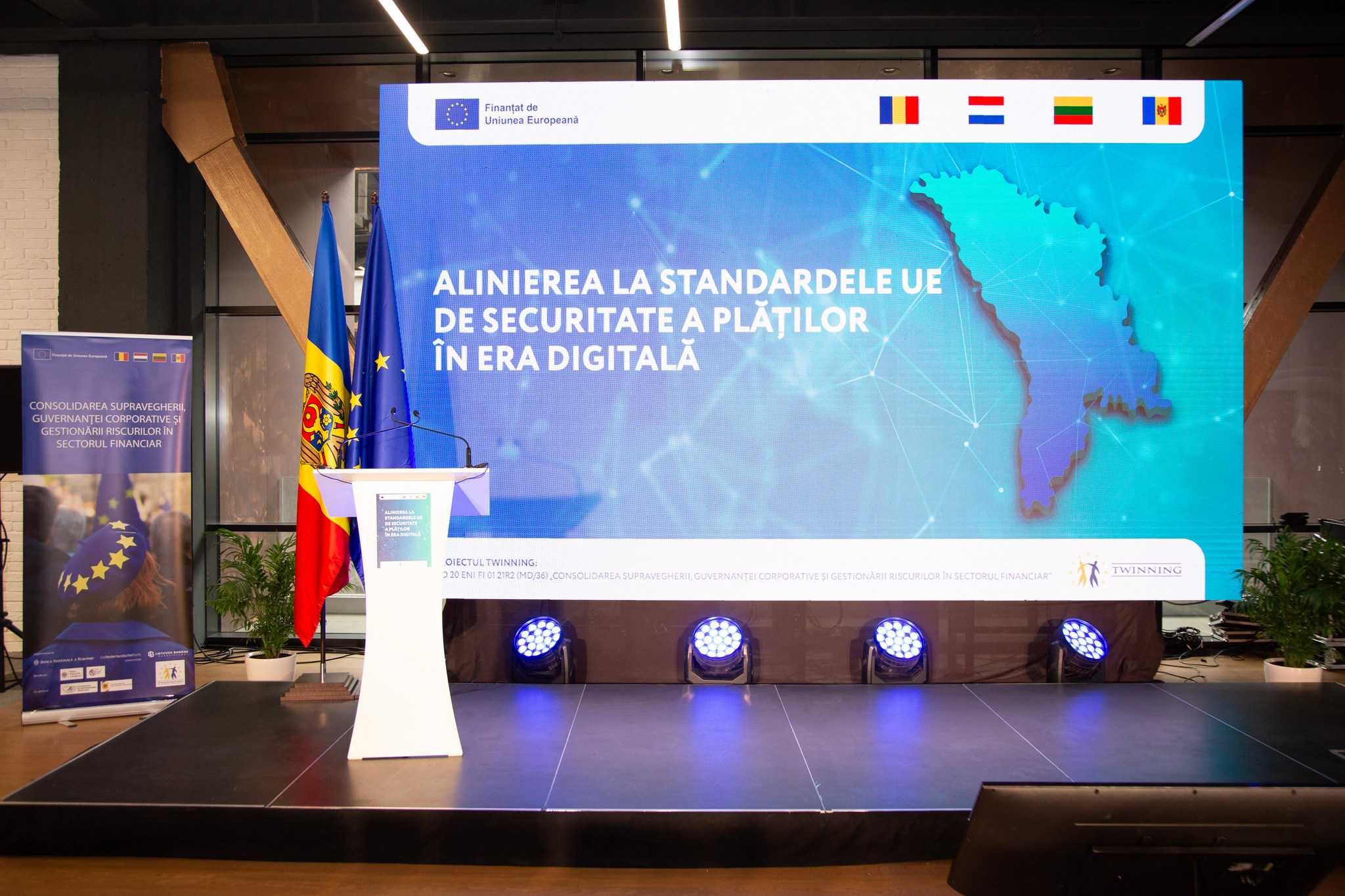Welcome to the official website of the National Bank of Moldova!
×
Do you have good eyesight and want to turn this tool off?
Welcome to the official website of the National Bank of Moldova!
You can choose one of the most popular reports from the list:
The conference: "Aligning with EU payment security standards in the digital age", organized with the support of the European Union.
The main developments in the field of payment system security, best practices in the implementation of payment security measures in the digital environment, as well as the requirements for payment security and continuity of payments, benefits, efforts and progress achieved so far in the European Union (EU)-funded Twinning project “Strengthening supervision, corporate governance and risk management in the financial sector of the Republic of Moldova” were discussed at the conference “Alignment with EU payment security standards in the digital era” held in Chisinau on Wednesday, 6 December 2023.
At the opening of the conference, the Governor of the National Bank of Moldova (NBM), Octavian Armașu, noted that the development of the payment system is an essential component of the modernization and efficiency of the financial sector.
“The projects and initiatives launched by the NBM in this regard aim to provide the society with a payment system with high-performance infrastructures and modern payment instruments that meet the needs of individual and corporate consumers of payment services” emphasized Octavian Armașu.
In this context, the Governor referred to the instant payment system and open banking, which aim to strengthen the innovative character of payment services, increase security, and bring new payment services to the market. Octavian Armașu also spoke about the ongoing project to join the SEPA area, which is an essential step towards opening borders to a barrier-free payments market and will provide the citizens of the Republic of Moldova with much safer, faster, and more convenient cashless payments in euro to and from the European area.
The representative of the National Bank of Romania (BNR), Șerban Matei, Director of the International Relation Directorate, said: “A constant concern of central banks is to promote the smooth functioning of payment systems and instruments to maintain citizens’ confidence in cashless payments. Alignment with EU standards in the digital age will not only strengthen the credibility of the financial system in the Republic of Moldova but also open new paths for innovation, efficiency, and transparency. Together with the NBR expert team, the NBM has managed to finalize 10 legal acts, including the amendment of the NBM's primary framework to strengthen the oversight function of financial market infrastructures and payment instruments, including minimum requirements for information and communication technology (ICT) risk management and information security.”
“Aligning with the EU payments security standards will create robust framework for securing financial transactions and protecting both consumers and businesses from potential threats. This will bring benefits to both the economy and the citizens. We congratulate the National Bank of Moldova for the new regulatory framework. Aligning with the best European guidelines and practices represents the continuation of NBM's actions to secure a modern financial and banking sector”, said Josip Jurić , Programme Manager, European Union Delegation to the Republic of Moldova.
The conference provided an opportunity to present key issues related to payment security, as financial transactions, particularly payments, are an essential part of economic relations. At the same time, the alignment of the Republic of Moldova with EU standards in the field of digital payment security is an important step to strengthen its position in the European and global financial landscape. This will support the country's economic integration and contribute to the creation of a secure, innovative, and sustainable financial environment for all stakeholders.
The official part of the event was followed by a session of presentations by experts in the field, who shared best practices in digital payment security with participants.
Topics covered at the event included:
Among the participants were high-ranking officials, representatives of the European Union Delegation to the Republic of Moldova and NBM's partners in the Twinning project, i.e. the implementing consortium consisting of the National Bank of Romania, the Central Bank of the Netherlands and the Central Bank of Lithuania, in cooperation with the Romanian Financial Supervisory Authority and the Romanian National Consumer Protection Authority. Representatives of the banking community and payment service providers from the Republic of Moldova (banking and non-banking) also participated.
Note:
Twinning is an EU instrument for institutional cooperation between the authorities of EU Member States and the authorities of beneficiary countries. Twinning projects aim to develop the institutional capacities of the beneficiary authorities. Under these projects, EU public sector experts are seconded to assist beneficiary authorities in achieving specific objectives. More information on the Twinning assistance instrument is available on the European Commission's website.
